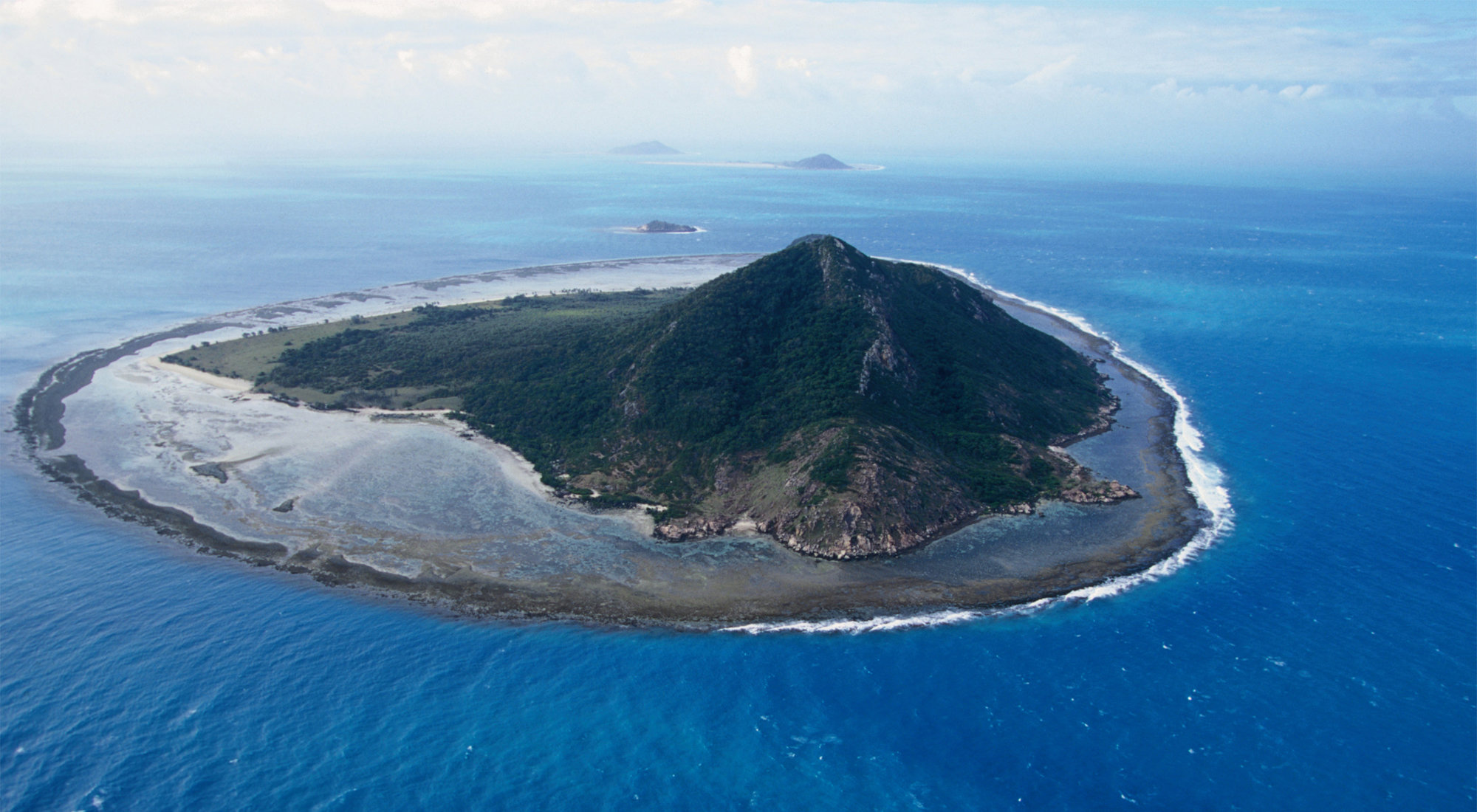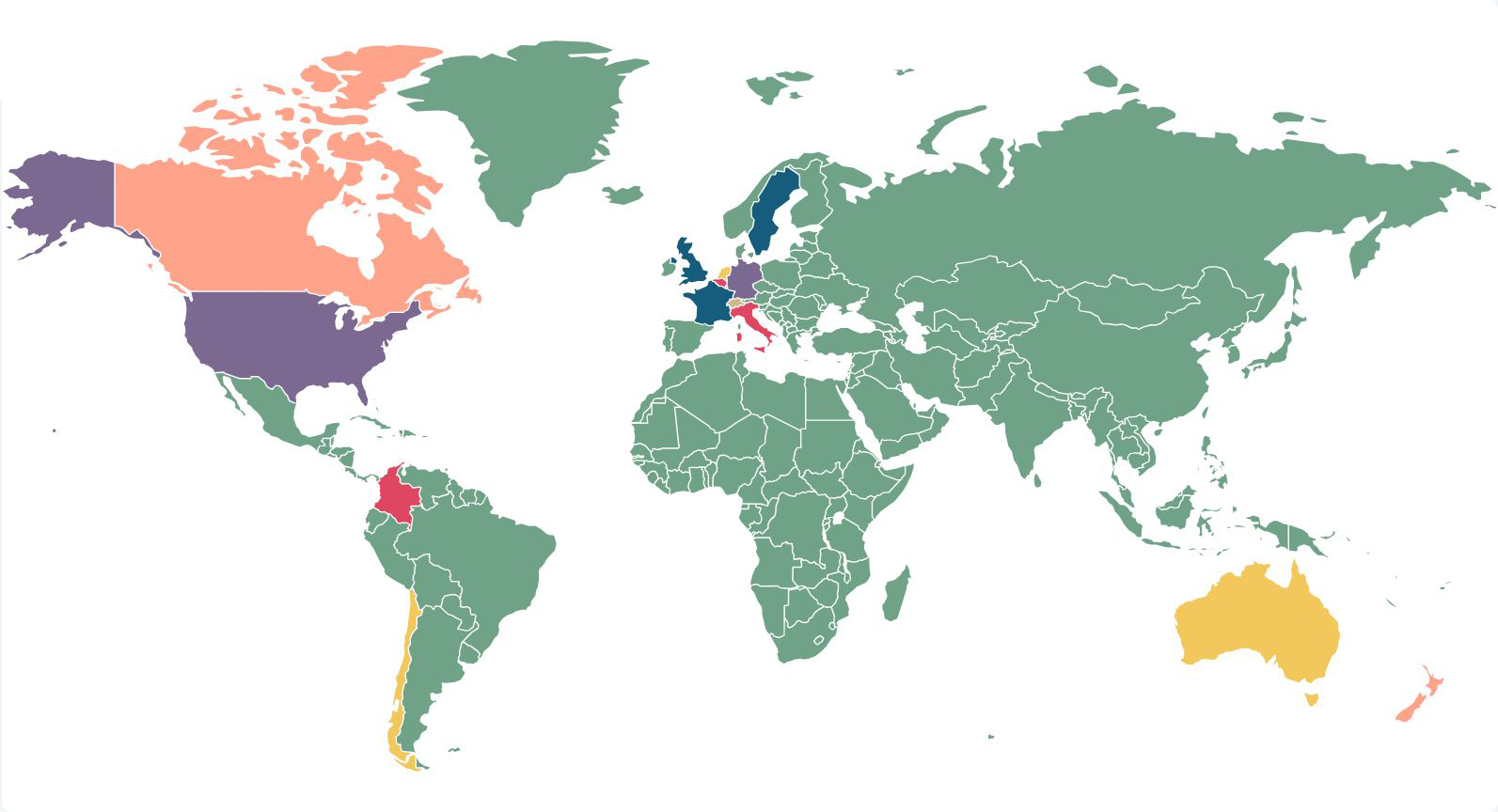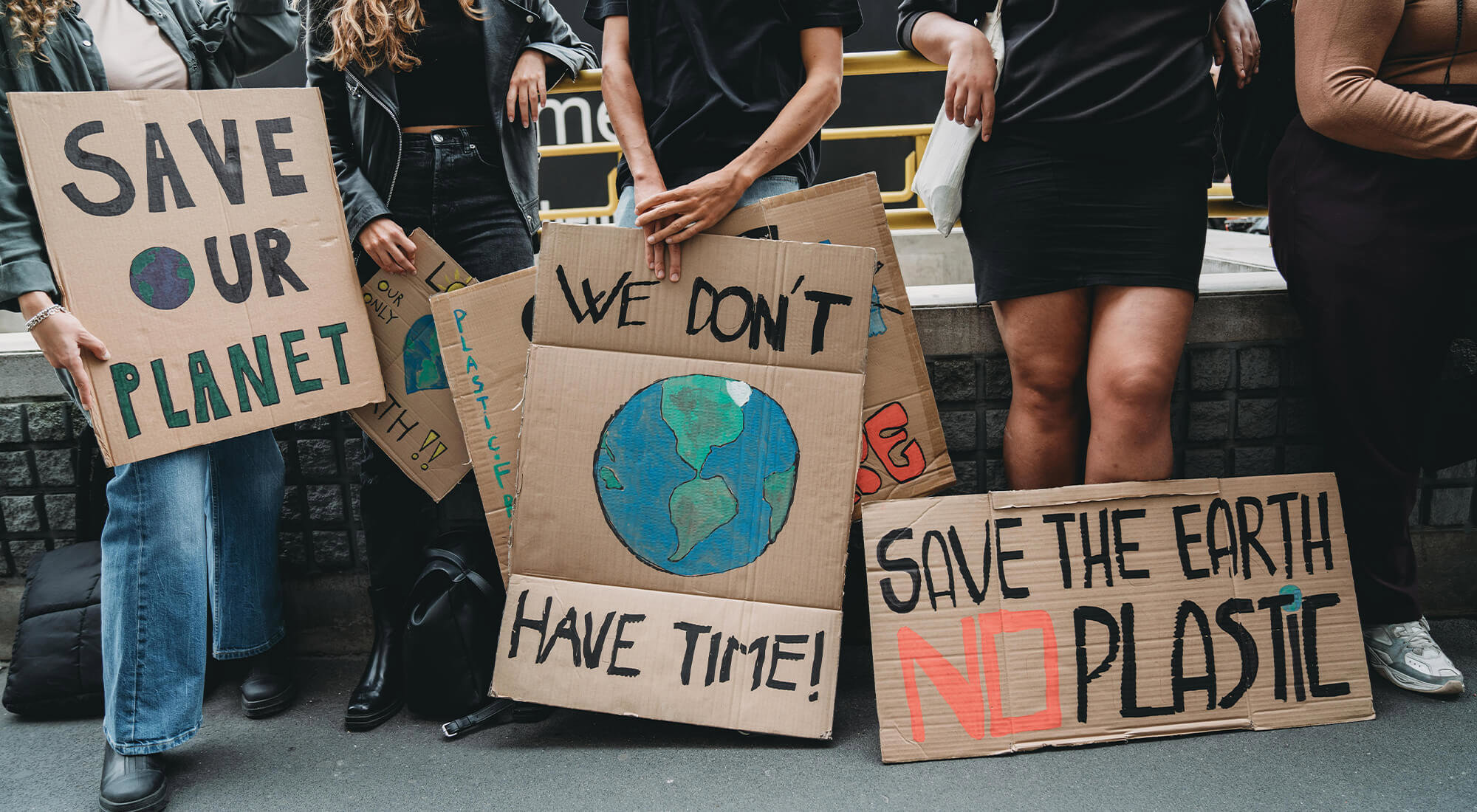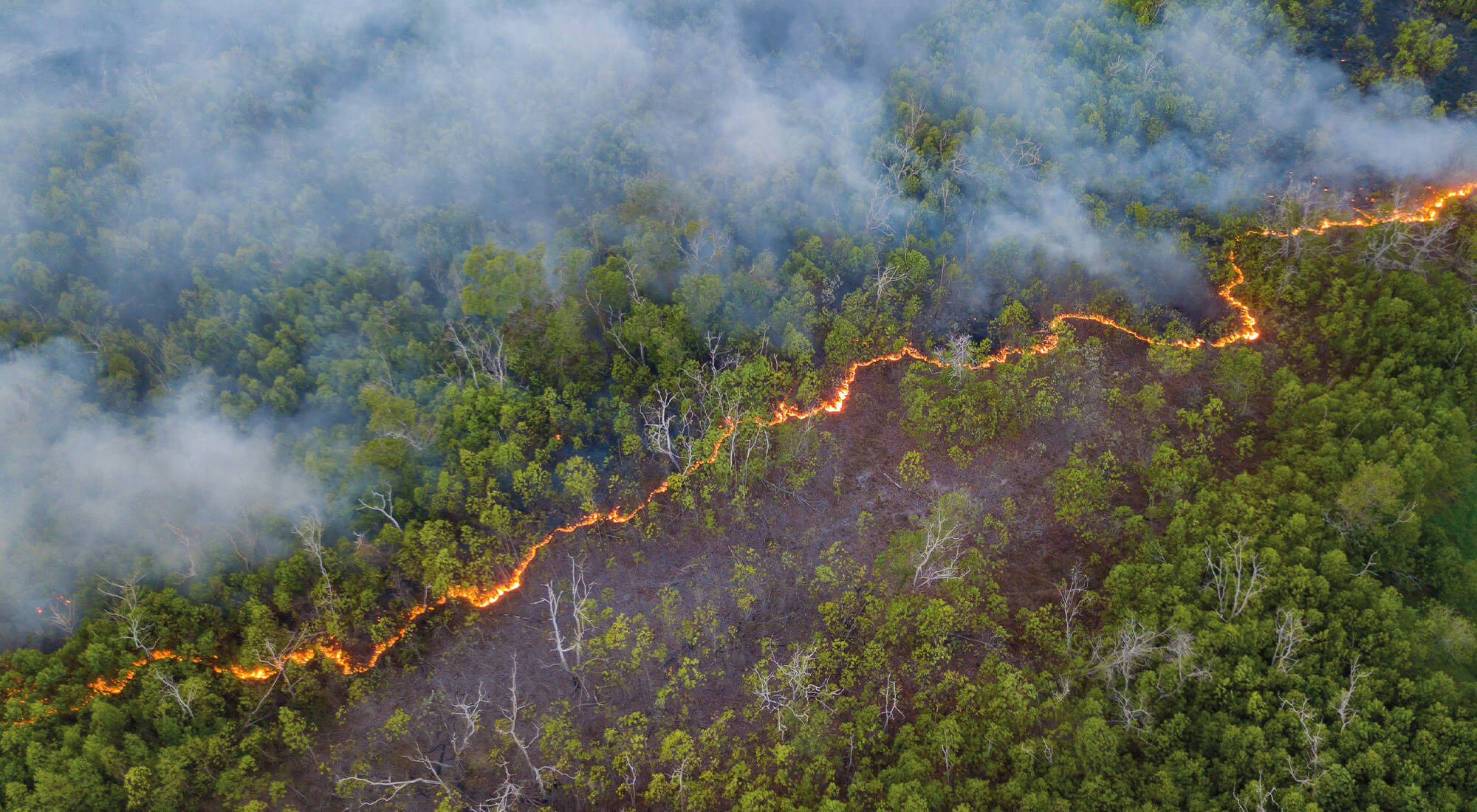Pabai Pabai v Commonwealth of Australia: Are there effective avenues for climate challenges brought by Indigenous and tribal interests?

The Federal Court in Australia has handed down a significant decision with major implications for Indigenous communities in Australian territories, in particular those vulnerable to the effects of climate change. This judgment will also be relevant for individuals or groups who seek to challenge government climate policies in domestic courts.
Justice Wigney rejected a class action claim in negligence brought against the Commonwealth of Australia by Pabai Pabai and Guy Paul Kabai, representing Torres Strait Islanders. Although Justice Wigney was plainly sympathetic to the Applicants, he found "the common law of negligence in Australia was an unsuitable legal vehicle" [1] through which to bring the claim.
The decision highlights the challenges in using common law negligence principles to challenge government policies on climate change.
Background
Mr Pabai Pabai and Guy Paul Pabai ("the Applicants") are elders and members of the Guda Maluyligal nation, Indigenous persons inhabiting the Torres Strait Islands ("the Islands"). The Islands are clustered between the mainland of Australia and Papua New Guinea.
In recent years, the Islands have experienced a number of impacts associated with climate change, such as rising sea levels, storm surges, erosion and depletion of beaches, and an inability to grow traditional crops.
The Torres Strait Islanders have a distinct customary culture, known as Ailan Kastom, a unique spiritual and physical connection with the Islands and surrounding waters. It is alleged that various impacts resulting from climate change have made it difficult to observe these customs and pass on knowledge to new generations.
The case was developed by a prominent plaintiff class action law firm together with the Urgenda Foundation, who brought the case of Urgenda Foundation v State of the Netherlands in 2015. The litigation was supported by public interest advocacy organisation, Grata Fund.
Allegations and findings
A special protective relationship?
The Applicants argued that a special protective relationship existed between the Commonwealth of Australia ("the Commonwealth") and the Torres Strait Islanders based on a range of historical statements, provisions of the Torres Strait Treaty between Australia and Papua New Guinea and other international declarations and covenants.
The Court rejected the Commonwealth's submission that "the relationship was nothing more than one between the governing and the governed," [2] but could not conclude that there was a special protective relationship. Mr Justice Wigney did accept that the Torres Strait Islanders are a distinct group of Indigenous Australians who are disadvantaged and vulnerable to climate change, and this should be considered part of the overall context of their relationship with the Commonwealth.
Applicants primary case
The Applicants' primary case submitted that the Commonwealth owed a duty of care to not only them but all Torres Strait Islanders to take reasonable steps to protect them, their way of life, the Torres Strait and its marine environment from the impacts of climate change.
Handing down judgment, the Court found that this primary claim in negligence was not made out, despite many of the factual allegations relating to climate change being accepted:
- The Islands are at the frontline of climate change, and the Torres Strait Islanders are at risk of becoming climate refugees.
- The best available science on how to address climate change was clear, and Australian climate targets were clearly unambitious.
- If every nation approached emissions reductions in the same manner, the progression and acceleration of climate change was inevitable.
Nonetheless, in an accompanying summary [3] published with the judgment, Justice Wigney stated that he was bound by decisions that "establish that governmental conduct and decisions which involve matters of high or core government policy are not properly or appropriately made the subject of common law duties of care."
Decisions relating to the setting of targets relating to greenhouse gas emissions fell squarely in this area. Further, there was no basis for concluding that a responsible government should only consider the best available science, and not other political, economic and social considerations.
In the event that such a duty and subsequent breach could be established, the available evidence could not conclude that any breach materially contributed to damage sustained. The 'unambitious' climate targets could not be said to have materially contributed to any increase in global temperature, and Australia's proportion of global emissions was low.
Concluding, Justice Wigney held that the alleged loss of fulfilment of Ailan Kastom could not be compensated. The loss of fulfilment of culture, customs, observances, beliefs and traditions, either by an individual or collectively by a community, is not currently a recognized category of actionable damage in tort.
Applicants’ alternative case
In the alternative, the Applicants also alleged that the Commonwealth owed a duty to take reasonable care to avoid causing property damage, and loss of fulfilment of Ailan Kastom resulting from a failure to adequately implement adaptation measures to prevent or minimise the impacts of climate change. These adaptation measures specifically related to the construction of a series of seawalls.
Once again, with reference to the primary case, any such decisions taken by the Commonwealth in respect of the construction project were not bound by common law duties of care, and any claim relating to Ailan Kastom was not compensable. Further, the Commonwealth had supplied all funding sought, and the evidence suggested that any inadequacy in the sums was due to cost overruns and administration by the Torres Strait Islands Regional Council rather than carelessness on the part of the Commonwealth.
Can the common law respond to the concerns of Indigenous peoples?
The judgment is clear that human induced-climate change will have a devastating impact on the Torres Strait Islanders. However, "the law in Australia as it currently stands provides no real or effective legal avenue through which individuals or communities [such as the Torres Strait Islanders] can claim damages or other relief," [4] resulting from government climate-related policies or conduct.
The creation of such a legal avenue will require "incremental development or expansion of the common law by appellate courts" [5]. Analogous examples of duties of care in Australian negligence actions were highlighted to support the Applicant's submissions, including situations where public authorities were found to have responsibilities to prevent natural disasters [6]. However, these were held to be fact-specific and did not assist the Applicants' claim.
The Applicants also relied on European case law, specifically Urgenda Foundation v State of the Netherlands, and Milieudefensie v Shell (prior to it being overturned on appeal). These decisions resulted in carbon reductions targets being imposed on the Dutch government and Shell respectively. The Court found that "that there is no basis for finding that the concepts of duty of care and negligence [in these decisions] that have any relevant resemblance to the Australian common law of negligence." [7]
Not unexpectedly, the Court offered no indication as to what any incremental development or expansion of relevant common law might encompass. However, as a possible indicator, the question of whether the common law is capable of addressing the tortious aspects of climate change has already been partially considered in the New Zealand Supreme Court decision in Smith v Fonterra Co-operative Group Limited. This case also considers issues of customs, traditions and beliefs akin to those of Ailan Kastom. It should be noted that this action was brought against a number of private companies, as opposed to a public body.
Initially dismissed, the New Zealand Supreme Court reinstated Smith v Fonterra in 2024, which will proceed to trial. The Court accepted that the pleadings provided for a common law claim in nuisance, stating it was "presently not convinced… the common law is incapable of addressing tortious aspects of climate change." [8]
Further, it commented that principles governing public nuisance "ought not to stand still in the face of massive environmental challenges attributable to human economic activity." [9] A claim in the tort of negligence was also reinstated to be heard at trial. However, the trial is unlikely to happen in the near future, so any consideration of the extension of common law tort principles in New Zealand is not expected soon.
Due to the clear difficulties in pursuing common law negligence actions against governments, activists in Australia may revisit the use of judicial review in order to prompt government action. Activists groups and individuals in the UK have previously pursued judicial reviews of climate-related policies. A judicial review involves an assessment of whether a decision by a public body is lawful is not.
These types of challenges in the UK have had mixed results. In February 2022, and again in June 2024, climate activists successfully obtained [10] a finding that the UK Government's net-zero strategy was inadequate, prompting orders for publication of revised plans. However, a similar challenge to the UK's National Adaptation Programme 3 was unsuccessful [11], despite the High Court noting that NAP3 did not address growing climate risks. On 15 July 2025, Friends of the Earth UK confirmed that a further legal challenge regarding the UK Government's net-zero strategy had been filed at the European Court of Human Rights [12].
Could legislation help bridge the gap?
Beyond the expansion of common law concepts, the Court highlighted the possible enactment of legislation to create legal and regulatory avenues to challenge climate policy or seek damages.
The Pabai Pabai judgment emphasises that the setting of climate targets, and by extension climate-related legislation, are driven by a combination of factors including political considerations.
Regardless of any appeal process that the Applicants may undertake, it is anticipated that individuals affected by climate change, along with advocacy groups, will persist in seeking modifications to domestic legislation and regulation as part of broader efforts to address climate change. These modifications may seek to make specific provision to accommodate the "disproportionate impact on indigenous and tribal peoples" [13] from climate change.
Recent developments in international human rights law set out possible regulatory frameworks to protect Indigenous peoples who are especially vulnerable to climate change. A recent opinion from Inter-American Court of Human Rights (the "IACHR"), directed at the Organisation of American States, outlined obligations on governments to uphold the rights of vulnerable groups such as Indigenous peoples and environmental defenders.
The IACHR found that states, as part of a wide range of progressive actions, should adopt measures to obtain data on the impact of climate change, and address the impacts of climate change on their territory, cultural heritage and subsistence.
Crucially, the IACHR concluded that states should adopt "legislative, administrative and public policy measures… to guarantee the protection of territory and strategies aimed at strengthening… the climate resilience and adaptability of the territories and dwellings of these communities and peoples." [14]
Further, the IACHR highlighted that victims of climate-related human rights breaches were entitled to 'full reparation'. However, this was not limited to financial damages, instead being "appropriate to the nature of the damages… [taking] into account the particular circumstances of the impact on individuals and communities." This could include restitution measures such as financing conservation or restoration actions, or guarantees of non-repetition.
Conclusion
"The common law has not previously grappled with a crisis as all-embracing as climate change."
This quote from the 2024 Smith v Fonterra judgment encapsulates the difficulties faced by not only climate activists but also the courts in relation to government climate policy.
At least in Australia, Pabai Pabai supports the view that the law, as it currently stands, “provides no real effective avenue” for which the Torres Strait Islanders could pursue their claims. Further, Justice Wigney commented that, until the law changes (either through common law development or legislation), the only recourse that those in the position of the Torres Strait Islanders have is “via the ballot box”. [15]
While the judgment in Pabai Pabai may, subject to any appeal, significantly narrow the prospect of the common law doctrine of negligence being an effective avenue for Indigenous people in Australia affected by climate change, the judgment is unlikely to affect existing legal obligations on businesses relating to climate change. Those include, for example, disclosure of climate risks, duties owed by directors, and compliance with environmental laws and regulations. As such, the judgment is unlikely to prevent further activist litigation in these areas in Australia in the future.
For pro-climate organisations, despite the disappointment of the outcome, Pabai Pabai represents another definitive finding affirming the existence and negative impacts of climate change. The decision will likely reinvigorate efforts in Australia and other jurisdictions to challenge government climate policy, and to advance the interests of those most acutely affected by climate change.
[1] Pabai v Commonwealth of Australia (No.2) [2025] FCA 796 at [1275].
[2] Ibid at [877].
[3] https://www.judgments.fedcourt.gov.au/judgments/Judgments/fca/single/2025/2025fca0796/summaries/2025fca0796-summary
[4] Pabai v Commonwealth of Australia (No.2) [2025] FCA 796 at [1275]
[5] Ibid.
[6] Ibid, at [950].
[7] Ibid, at [966].
[8] Smith v Fonterra Co-operative Group Limited [2024] NZSC 5 AT [154]
[9] Ibid.
[10] https://www.clientearth.org/latest/news/were-taking-the-uk-government-over-its-net-zero-strategy/
[12] https://friendsoftheearth.uk/climate/legal-challenge-over-uks-climate-adaption-plan-filed-european-court-human-rights
[13] Opinion OC-32/25, Inter-American Court of Human Rights at [605]
[14] Ibid, at [606]
[15] Pabai v Commonwealth of Australia (No.2) [2025] FCA 796 at [1275].













